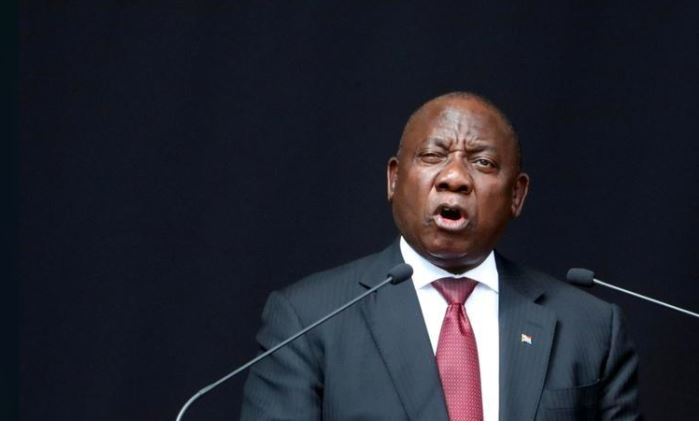South African President Cyril Ramaphosa announced a package of reforms on Thursday which he said would create 275,000 more jobs a year, in a bid to bring down sky-high unemployment and improve his own track record on the economy.

More than two decades after the end of white minority rule, South Africa still has one of the highest jobless rates among major global economies, with more than a quarter of its work force unemployed.
Ramaphosa, who took over from scandal-plagued Jacob Zuma in February, has made boosting job creation a cornerstone of his reform drive. But his efforts were dealt a blow last month when data showed the economy had fallen into recession for the first time in a decade.
“Unemployment is the greatest challenge facing our country,” Ramaphosa told a gathering of top officials, business leaders and trade unionists outside Johannesburg.
“Extreme unemployment in this country is the product of an economy that for several decades has been starved of any meaningful investment in its human capital, where most people have been denied the opportunity to own assets.”
Ramaphosa said the measures unveiled on Thursday included agreements by top public and private firms to boost local procurement and an export drive that would prioritise manufactured and processed goods.
The financial sector will invest 100 billion rand ($6.8 billion) over five years in black-owned industrial enterprises, and the country will aim to expand its horticultural trade from 54 billion rand to 90 billion rand by 2030, the president added.
International organisations including the World Bank have been calling for decisive action to address South Africa’s high levels of unemployment and inequality for many years.
In its South Africa Economic Update earlier this year, the World Bank said improving the quality of basic education and improving spatial integration between economic hubs were two interventions that could reduce inequality and support job creation.
Ramaphosa’s jobs plan follows a “stimulus and recovery plan” he announced last month to try to get the economy back on track.
($1 = 14.7075 rand)
Editing by Hugh Lawson

